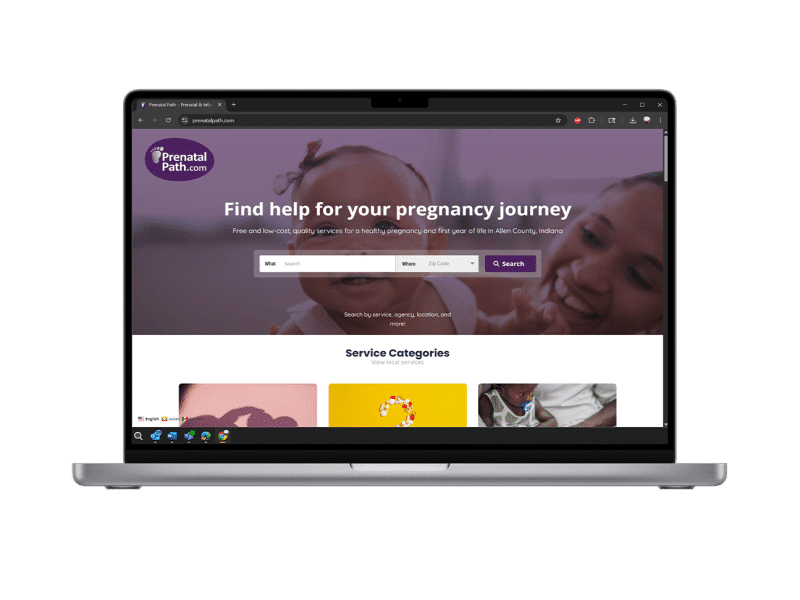Partner Partner Content Q&A: What you should know about the COVID-19 vaccine in Northeast Indiana
We sat down with Jeffrey Boord, MD, MPH, Chief Quality and Safety Officer at Parkview Health, to answer some of the most frequently asked questions about the COVID-19 vaccine.

As all Hoosiers age 16 and up are now eligible to receive the COVID-19 vaccine, it’s important to have accurate information from a reliable source.
We sat down with Jeffrey Boord, MD, MPH, Chief Quality and Safety Officer, Parkview Health, to answer some of the most frequently asked questions about the vaccine.
Q: Are the COVID-19 vaccines safe?
JB: Yes. Before the COVID-19 vaccines were released for use, each was carefully studied in three phases of clinical trials involving tens of thousands of diverse participants to determine the safety and efficacy of the vaccine. The Vaccine Adverse Event Reporting System is also used to actively monitor any reports of unexpected effects reported after vaccination.
Q: Are the vaccines effective?
JB: Both Pfizer and Moderna vaccines are approximately 95 percent effective at preventing COVID-19. The Johnson & Johnson vaccine has a 66 percent global efficacy against preventing moderate to severe illness, but, more importantly, it is 85 percent effective against severe illness and 100 percent effective in preventing death from COVID-19.
Q: Can I still get the Johnson & Johnson vaccine?
JB: Yes. On April 12, use of the Johson & Johnson (Janssen) vaccine was paused for review by the Centers for Disease Control and Prevention (CDC) after reports of six cases of a rare and severe type of blood clot. After assessing the risk, the Food and Drug Administration (FDA) has determined that the available data show the vaccine’s known and potential benefits outweigh its known and potential risks in adults. The FDA and CDC have confidence this vaccine is safe and effective in preventing COVID-19.
Q: Can I get COVID-19 from the vaccine?
JB: No, you cannot get COVID-19 from the vaccine. The Pfizer and Moderna COVID-19 vaccines are both messenger ribonucleic acid (mRNA) vaccines, and the Johnson & Johnson vaccine uses a “viral vector” technology. These vaccines do not contain live virus.
The vaccine is designed to trigger a protective immune response in your body, so that your immune system can protect you from infection by the COVID-19 virus. Sometimes this immune response process can cause temporary side effects, such as soreness and redness at the injection site, fatigue, headache, and muscle or joint pain. These symptoms are normal signs of your body building immunity, and will resolve within 48-72 hours after vaccination.
Two doses of an mRNA vaccine (Moderna or Pfizer) are required to build immunity, and immunity is established 14 days after the second dose. The Johnson & Johnson vaccine requires only one dose, and immunity is established 14 days after vaccination.
Q: Can I get the vaccine if I’m pregnant or trying to get pregnant?
JB: Yes. A discussion with your healthcare provider can help you make an informed decision. It is important to know that, according to the Centers for Disease Control and Prevention (CDC), pregnant women are at increased risk for severe illness from COVID-19.
According to the American Society for Reproductive Medicine, since the vaccine is not a live virus, there is no reason to delay pregnancy attempts because of vaccine administration or defer fertility treatment until the second dose has been administered. There is absolutely no evidence that COVID-19 vaccines affect the fertility of women or men.
Q: Should I take the COVID-19 vaccine if I have a chronic health condition?
JB: Adults of any age with certain underlying medical conditions, such as diabetes, obesity, heart conditions, COPD, chronic kidney disease, and cancer, are at increased risk for severe illness from COVID-19, making vaccination especially important.
Q: How long will the vaccine protect me?
JB: Scientists are still studying exactly how long the vaccine’s protection will last. The trials will continue for the next few years to determine how long a person is protected.
Q: Once I receive the vaccine, am I no longer at risk for being a carrier? Can I stop wearing a mask?
JB: Even after being vaccinated, you should continue to wear a mask in public spaces and in healthcare settings. According to CDC guidance, fully vaccinated people can:
- Visit with other fully vaccinated people indoors without wearing masks or physical distancing.
- Visit with unvaccinated people from a single household who are at low risk for severe COVID-19 disease indoors without wearing masks or physical distancing.
- Refrain from quarantine and testing following exposure to someone with COVID-19, as long as the fully vaccinated person remains asymptomatic.
- Resume domestic travel and refrain from testing or self-quarantine before and after travel.
For answers to more questions about the COVID-19 vaccine, visit parkview.com/covidvaccine. For information on current eligibility, or to make an appointment to receive the vaccine, visit ourshot.in.gov.










